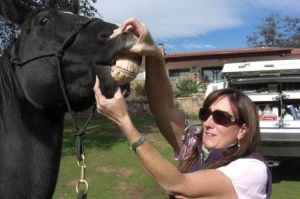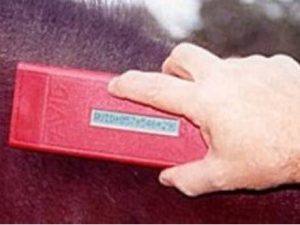
INSURING YOUR HORSE
There are 3 primary types of equine insurance: mortality, major medical, and loss of use.
Mortality insurance is the most common type of livestock insurance. You must make the appointment and pay for the examination of your horse. Mortality insurance policies are renewable annually. An insurance company may refuse or agree to insure a particular horse, a particular problem or a particular body part, such as the legs, at each annual policy renewal.
Major medical and/ or surgical insurance usually can be obtained from companies carrying this type of insurance as an addition to mortality insurance. In the event of a major medical problem,
you would be required to pay the total veterinary bill. You then submit the bills to the insurance company and are reimbursed as per your insurance policy.
With loss-of-use insurance, generally the insurance examination is more thorough (and most costly) and similar to a pre-purchase examination. In a loss-of-use claim, several expert opinions,
stating that the horse may never again be able to perform its intended task, may need to be obtained before the insurance company pays the claim.
Equine insurance policies are usually renewable annually, in contrast to human health insurance, which remains in effect as long as the premiums are paid. Livestock insurance policies require compliance with required paperwork, thorough reporting, and conscientious therapy before a claim can be paid.
Considerations Related to Insured Horses
- When your insured horse has any problem requiring medical attention, notify the insurance company.
- With any elective surgery, no matter how insignificant, notify the insurance company before surgery.
- Keep accurate records and all copies of veterinary reports, and make sure that all parties involved with the insurance claim have completed their paperwork in the appropriate time. A phone call is always worthwhile to check that all required documents are in order.
- If euthanasia is necessary, contact the insurance company before the horse is euthanized. In some cases, it is obvious that a horse must be euthanized, such as with a femoral or humeral fracture. In other cases, however, the insurance company may require you to provide more medical and/ or surgical treatment than you feel is appropriate before resorting to euthanasia, such as with pleuropneumonia or a pastern bone fracture. Horses with unrelenting colic may require surgery to establish the diagnosis. In life-threatening situations, you should make your feelings regarding your horse’s welfare and possible euthanasia known clearly to the insurance company and to Dr. Garfinkel.
- With most cases involving a potential claim, the insurance company will select a veterinarian to give a second opinion. This benefits both you and your horse.
Dealing with insurance company requirements when your horse is ill or injured can be frustrating. However, remember that the insurer is also there to help protect your investment, which is why you purchased the insurance in the first place.

















